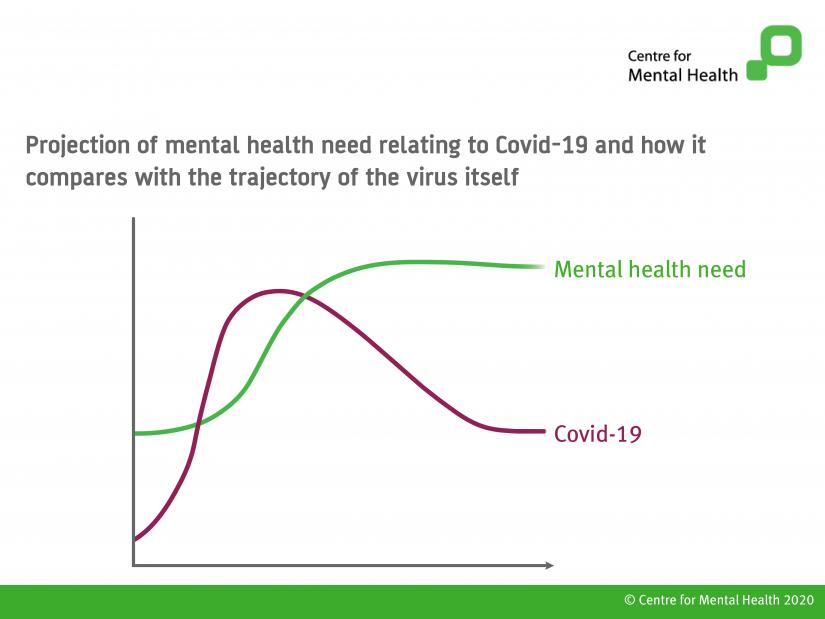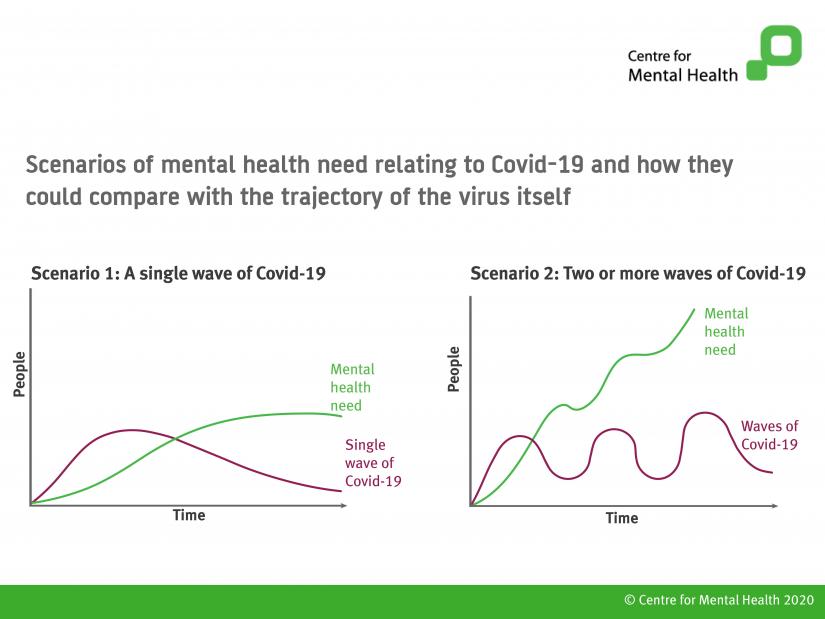Forecasting needs and risks in the UK
Dr Graham Durcan, Nick O’Shea and Louis Allwood
How will the coronavirus pandemic affect the nation’s mental health?
Covid-19 and the nation’s mental health: Forecasting needs and risks in the UK is our first assessment of the likely impacts of Covid-19 on mental health in Britain. It uses evidence from previous epidemics internationally and from the aftermath of the 2008 banking crisis to estimate what effect Covid-19 will have on mental health at population level in the UK.
If the recession that follows the economic effects of the virus is similar to 2008, our analysis indicates that about half a million more people will experience a mental health difficulty over the next year. But if there is a second wave of Covid-19 and the economy is damaged further, the effects on mental health will be greater still, and last much longer.
The briefing looks at specific groups of people whose mental health will be put at risk as a result of the virus and the lockdown. These include people who have been bereaved at this time, those who have received intensive hospital treatment for the virus, and staff working in health and care services. Many people who have been through these experiences will experience serious grief and trauma symptoms over a long period of time.
The briefing also notes that some groups of people face an especially high risk to their mental health. They include people facing violence and abuse, people with long-term health conditions, and people from Black, Asian and minority ethnic communities. People with existing mental health difficulties also face significant risks that their health will worsen at this time.
Covid-19 and the nation’s mental health is the first of a series of forecasts about the mental health impacts of the virus. It will be updated as more evidence comes to light and the situation develops.
It makes four recommendations for actions that are needed now to protect the nation’s mental health at this stage of the crisis:
- The Government should ensure that it continues to provide a financial safety net for people whose livelihoods are affected by the pandemic to prevent further financial insecurity and the serious effects this has on people’s mental health.
- The Government and Public Health England should provide advice and support to organisations, including schools, health and care services and businesses, in trauma-informed approaches to help them to create a sense of psychological safety for people who use and work in them following the lockdown.
- The NHS should develop a proactive and tailored offer of mental health support to people who have received hospital treatment for Covid-19, to people who are working in health and care services with people with Covid-19, and to people who have experienced a bereavement during this time, whether from the virus or other causes.
- The NHS should prepare for both a V-shaped and a W-shaped recession during the next five years, with resources (financial and human) to respond either to a single, deep recession this year or to a series of economic shocks each of which will create additional need for mental health support.
The below shows the possible trajectory of mental health need relating to Covid-19 and how it compares with the trajectory of the virus itself. It does not seek to quantify the numbers of people affected by either but provides an indication of how the two relate to each other over time. The future directions of each line will be influenced by a number of factors, most importantly whether there is a second wave of infections and economic shocks without a safety net.

The impact of Covid-19 on our mental health are already significant. But the severity and duration of impact in the population as a whole will depend on whether there is a single wave of the virus or if there is a second or subsequent waves. Two possible scenarios and their impacts on levels of mental distress are shown in these charts:












